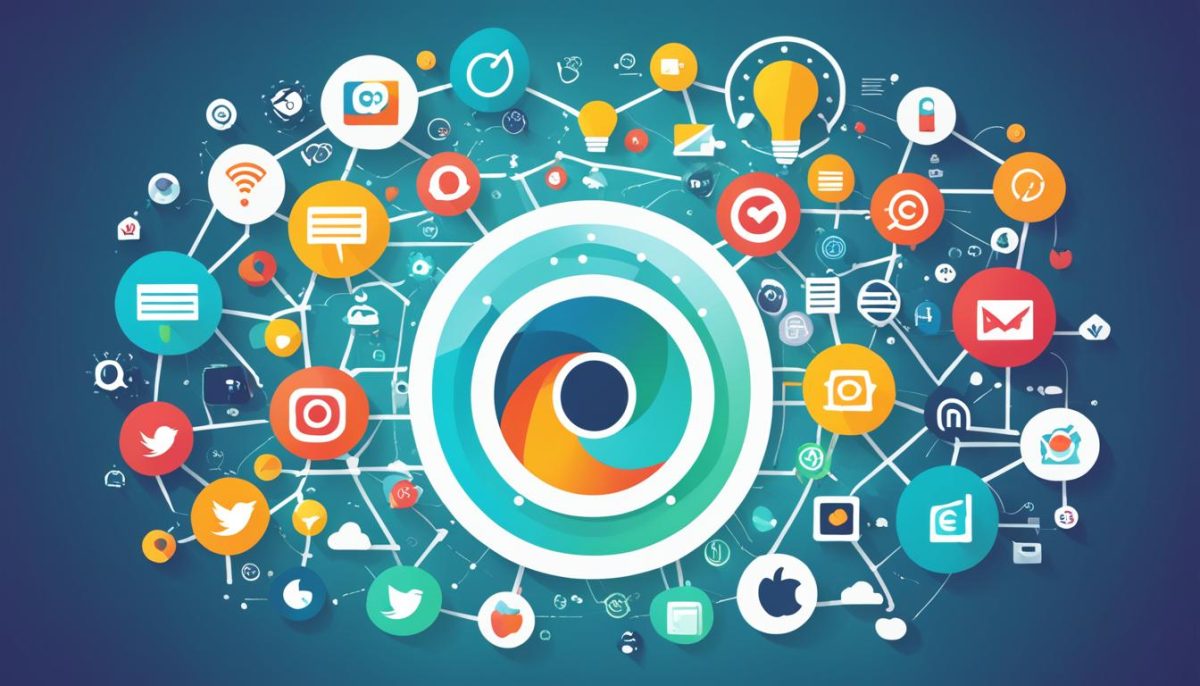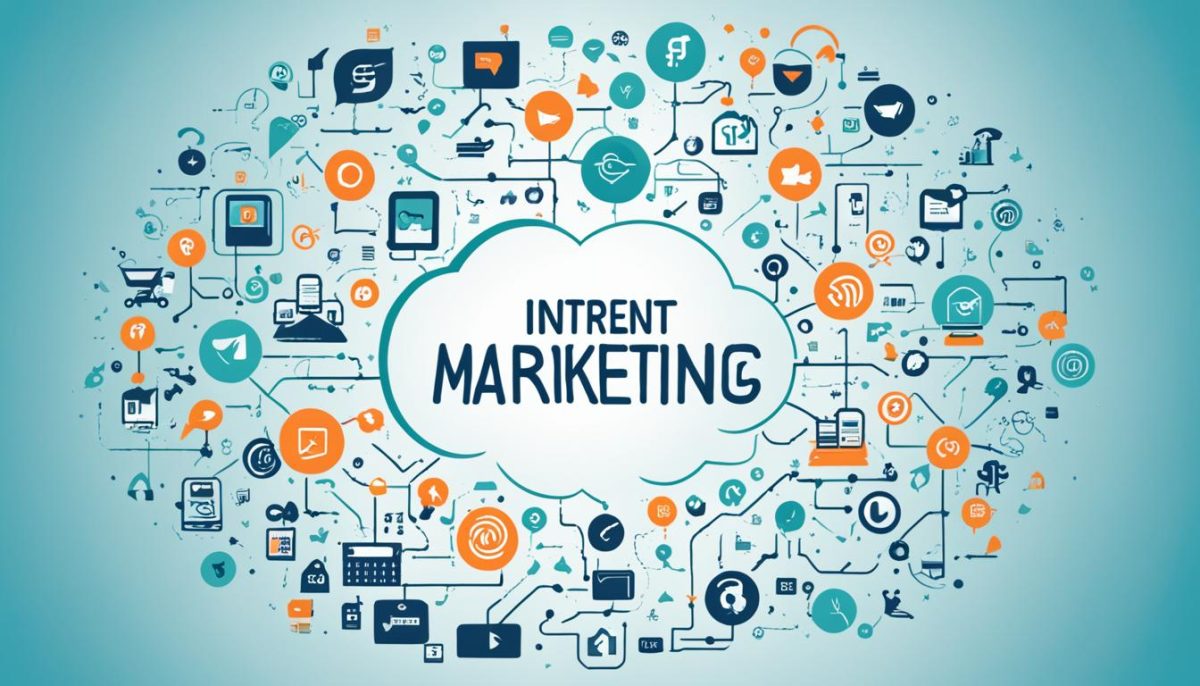Welcome to our informative guide on Internet Marketing versus Digital Marketing. In today’s digital world, these terms are often used interchangeably, but is there really a difference between the two? Let’s explore and uncover the truth.
Internet Marketing and Digital Marketing are related concepts that both involve promoting your products or services online. However, there are subtle distinctions that can impact your business strategy and success.
Before we dive deeper, let’s quickly define these terms. Internet Marketing primarily focuses on marketing efforts that take place on the internet. This includes strategies such as search engine optimization (SEO), social media marketing, content marketing, and email marketing. On the other hand, Digital Marketing encompasses a broader scope, incorporating internet marketing techniques along with other digital channels, such as mobile apps, display advertising, and digital signage.
Understanding the differences between Internet Marketing and Digital Marketing can help you make informed decisions when devising your marketing strategy. By targeting the right audience and utilizing the appropriate channels, you can maximize your reach and engagement.
Now that we have a foundation to build upon, let’s explore the intricacies of Internet Marketing in the next section.
Understanding Internet Marketing
In this section, we will delve into the realm of Internet Marketing and explore the various aspects that make it an essential component of any successful business strategy. Internet Marketing refers to the use of digital channels and online platforms to promote products and services, engage with customers, and drive business growth.
At the core of Internet Marketing lies the goal of connecting businesses with their target audience using strategies and techniques tailored for the online landscape. Let’s take a closer look at some of the key elements that encompass Internet Marketing:
1. Search Engine Optimization (SEO)
SEO is a crucial component of Internet Marketing as it focuses on improving a website’s visibility and organic search rankings on search engines like Google. By optimizing website content, keywords, and technical aspects, businesses can increase their online presence and attract more organic traffic.
2. Social Media Marketing
Social media platforms provide businesses with a powerful tool for reaching and engaging with their target audience. With strategies such as content creation, community management, and targeted advertising, businesses can leverage social media platforms like Facebook, Instagram, and Twitter to build brand awareness, drive website traffic, and generate leads.
3. Content Marketing
High-quality content plays a critical role in Internet Marketing. By creating valuable and relevant content, such as blog posts, articles, videos, and infographics, businesses can establish thought leadership, engage their audience, and attract potential customers. Content marketing also ties closely with SEO, as optimized content can help improve search rankings and boost organic traffic.
4. Email Marketing
Email marketing is a direct and effective way to communicate with customers and nurture relationships. By building an email list and sending targeted campaigns, businesses can share promotional offers, valuable content, and personalized messages to their subscribers, driving conversions, and fostering customer loyalty.
Understanding the various strategies and techniques in Internet Marketing can help businesses harness the power of the digital landscape to connect with their audience, drive brand awareness, and achieve their marketing goals.
| Benefits of Internet Marketing | Challenges of Internet Marketing |
|---|---|
|
|
Exploring Digital Marketing
In this section, we will turn our attention to Digital Marketing and its significance in the modern business landscape. Digital Marketing encompasses a broader scope of online advertising strategies to reach and engage with customers in the digital realm. It goes beyond just the internet and extends to various digital channels such as mobile apps, display advertising, and digital signage.
With the rise of smartphones and the increasing amount of time people spend online, businesses recognize the importance of leveraging digital platforms to connect with their target audience. Digital Marketing allows businesses to reach potential customers across various devices and platforms, ensuring a consistent and impactful brand presence.
One of the key advantages of Digital Marketing is its ability to provide measurable results. With the help of analytics tools, businesses can track and analyze the performance of their digital campaigns, gaining insights into customer behavior, preferences, and the effectiveness of their marketing strategies. This data-driven approach enables businesses to make data-backed decisions and optimize their marketing efforts for maximum ROI.

Whether it’s through targeted social media advertising, personalized email campaigns, or interactive mobile apps, Digital Marketing offers a versatile range of tools and tactics to engage with customers throughout their buying journey. By leveraging digital channels effectively, businesses can create meaningful connections with their audience, generate leads, and drive conversions.
In the next section, we will compare Internet Marketing and Digital Marketing, exploring the similarities and differences between these two strategies to provide a comprehensive understanding of how businesses can leverage them for success.
Comparing Internet Marketing and Digital Marketing
Internet Marketing and Digital Marketing are two terms often used interchangeably, but they are not exactly the same thing. While both are crucial for businesses in the digital age, it is important to understand the distinctions between them to make informed decisions about your marketing strategy.
When it comes to target audience, Internet Marketing focuses on reaching and engaging with potential customers specifically through online channels, such as websites, search engines, and social media platforms. On the other hand, Digital Marketing encompasses a broader scope, including not only the internet but also other digital channels like mobile apps, display advertising, and even offline platforms like digital signage.
Another factor to consider is the strategies employed in each approach. Internet Marketing often involves tactics like search engine optimization (SEO), website optimization, content marketing, and email marketing to increase visibility and drive traffic to a website. Digital Marketing, on the other hand, may incorporate these strategies as well but also includes additional techniques like mobile marketing, video marketing, and influencer marketing to create a comprehensive digital presence.
By understanding the differences between Internet Marketing and Digital Marketing, you can tailor your marketing efforts to suit your business goals and target audience. Whether you focus solely on internet-based strategies or adopt a more comprehensive digital approach, a clear understanding of these two concepts will help you develop a marketing strategy that maximizes your reach, engages your audience, and drives business growth.

